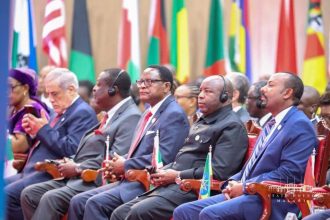World Bank tips govt on forex markets
Increased coordination between monetary and fiscal policy, better coordination with stakeholders and letting business agents trade freely on forex will be essential to contain the growth of the informal forex market, the World Bank says.
In its January 2024 issue of the Malawi Economic Monitor, the Bretton-Woods institution noted that a lack of coordination between fiscal and monetary policy creates inflationary pressures that eventually lead to a depreciating rate.

The report reads: “Successful exchange rate reforms generally involve coordinated fiscal and monetary tightening.”
The bank further urges strong communication with stakeholders and the government refrains from moral suasion—public pressure by authorities to encourage individuals or groups to behave in a certain manner.
It reads: “Potential foreign exchange sellers will want to know the exchange rate policy going forward before they trade in the official system. This generally takes longer in contexts where there is a history of mistrust between central banks and market actors.
“[Further], attempts to coerce market participants into selling foreign exchange at a given rate will clearly signal to them that the new rate is not freely available or fair. In turn, they will be reluctant to bring foreign exchange into official markets.”

The recommendations follow observation that the spread between the official and median rates at forex bureaus has widened to over 17 percent at the end of January 2024 after it had narrowed to six percent following the 44 percent devaluation in November last year.
The trend suggests that the currency devaluation and the move to a more liberalised exchange rate regime have not induced the desired result of containing the informal forex market.
Speaking at the launch of the MEM report, Economics Association of Malawi president Bertha Bangara-Chikadza, said the forex realignment was a “good” move that discourages imports but bemoaned its failure to boost exports and encourage people to transfer to the formal forex sector.
She said: “The realignment was supposed to go hand in hand with the flooding of the forex into the formal banking sector so it could be available to everyone. We should see that some economic assumptions for countries like Malawi do not work unless some supplementary measures are implemented.”
On her part, Malawi Investment and Trade Centre team leader Daisy Kambalame said the forex problems can be solved by boosting production for the exports to generate forex for the local market.
She said: “We can’t continue to just rely on inflows from donors and expect that that is what is going to stabilise the economy. We have to trigger investments to productive areas that can boost forex earnings. It is not just about policy.”
Kambalame is also heading the Malawi Value Chain Project, an initiative funded by the British Foreign, Commonwealth and Development Office to boost production into alternative value chains and diversify sources of forex.
RBM data shows that the country’s gross foreign reserves—the amount of forex under the direct control of the central bank—have grown marginally from $179.33 million or 0.7 months of import cover in October to $242.58 (0.97 months of import cover).
However, this is lower than the $304.65 million (1.22 months of import cover) at the end of December 2022.





